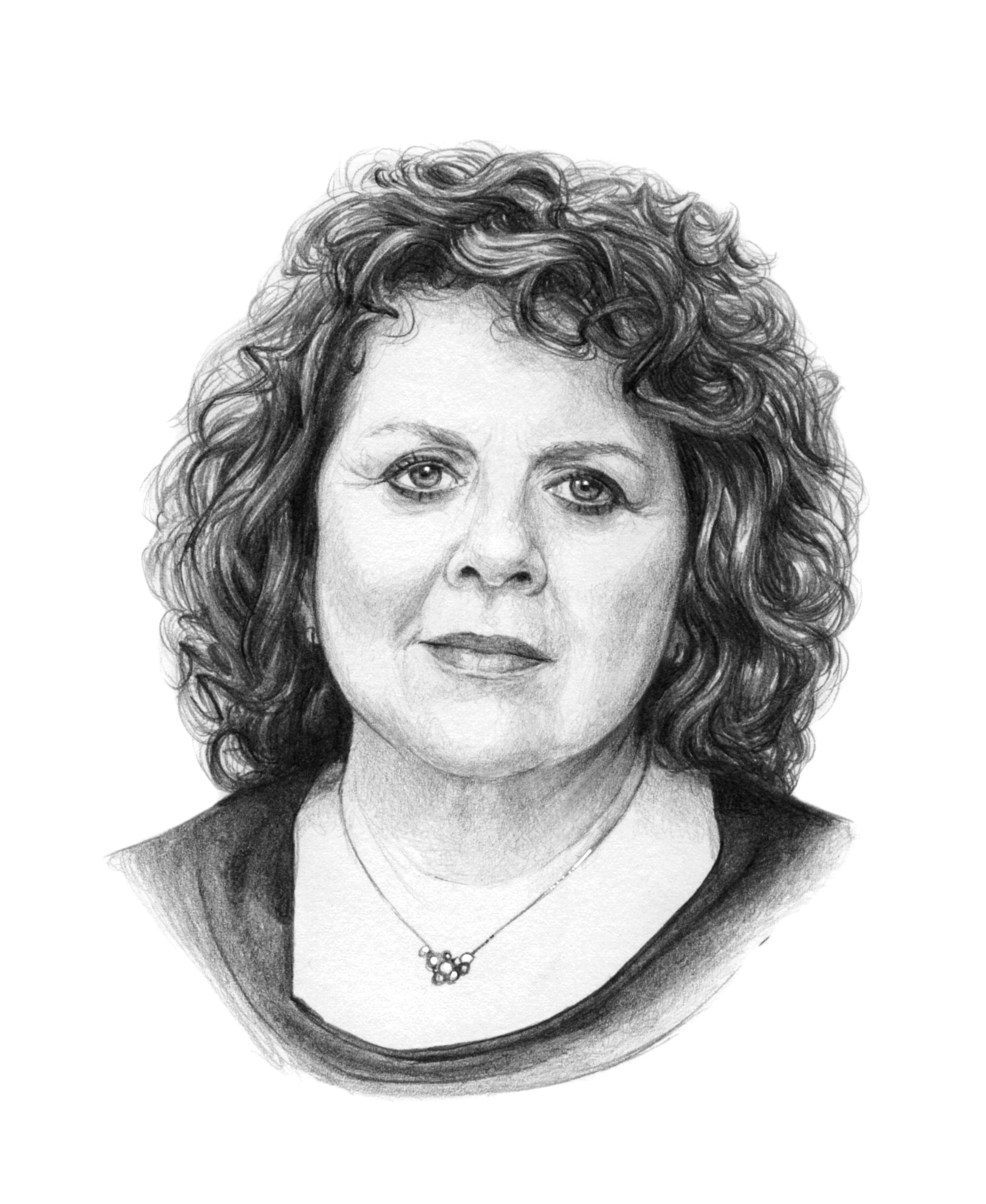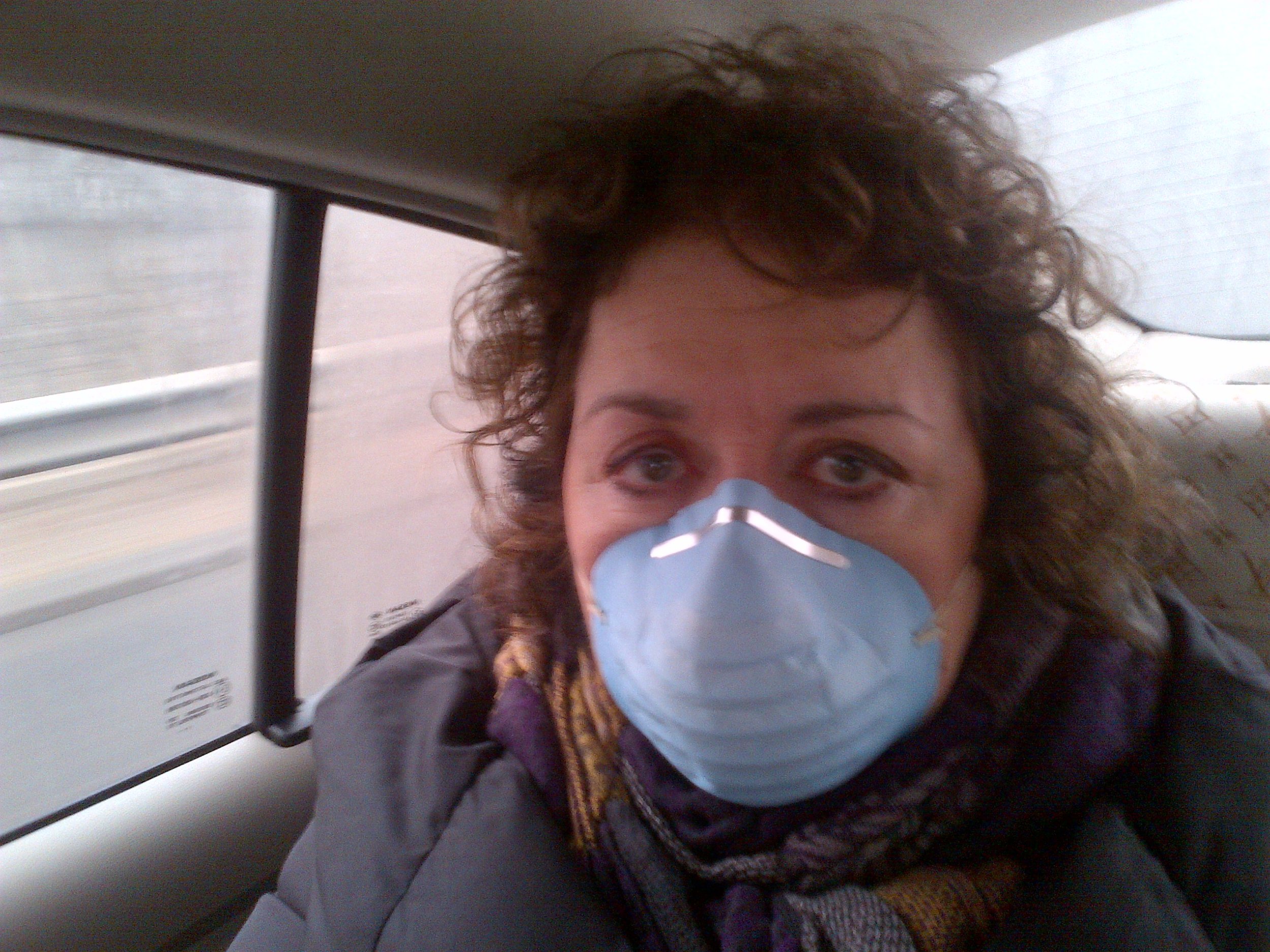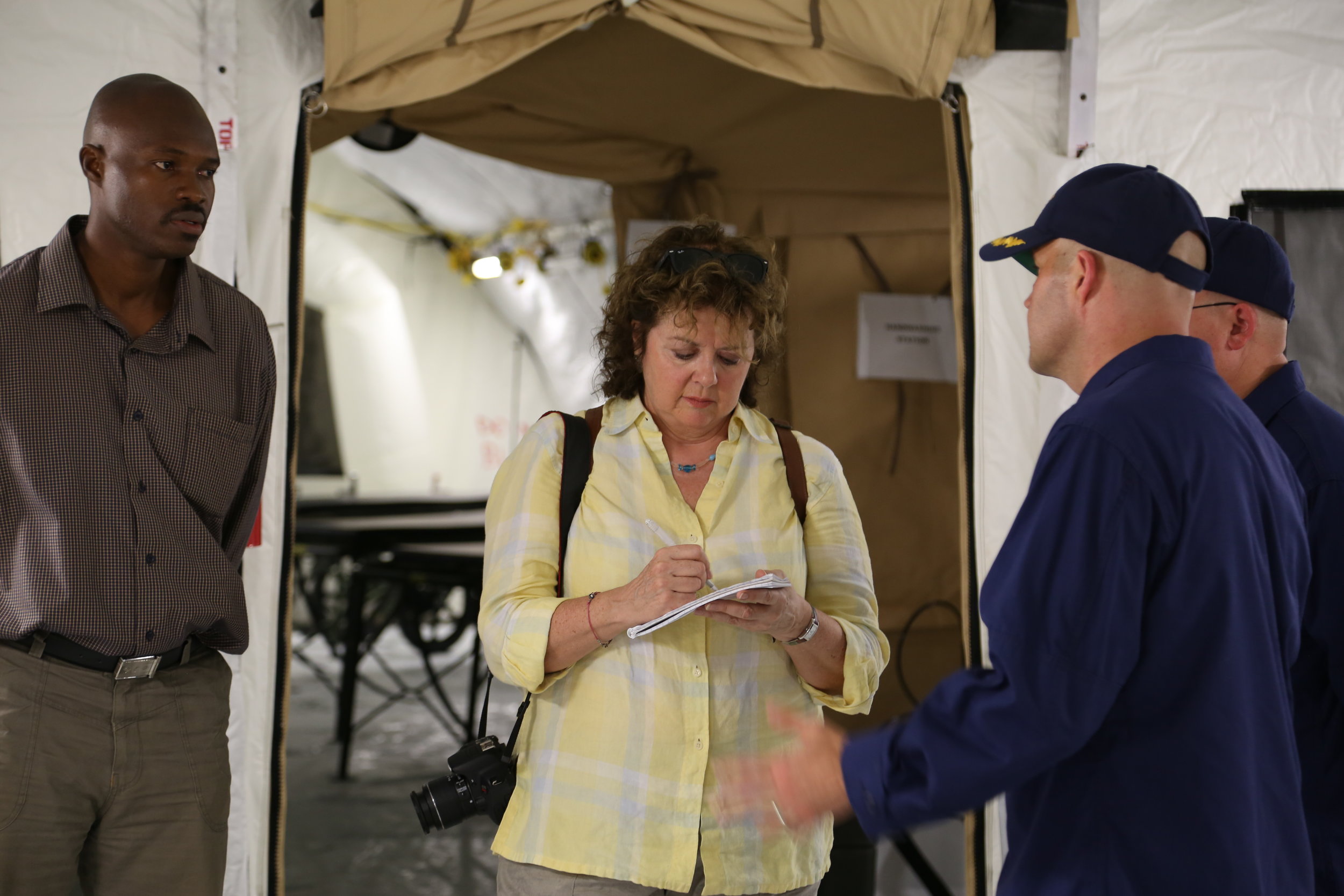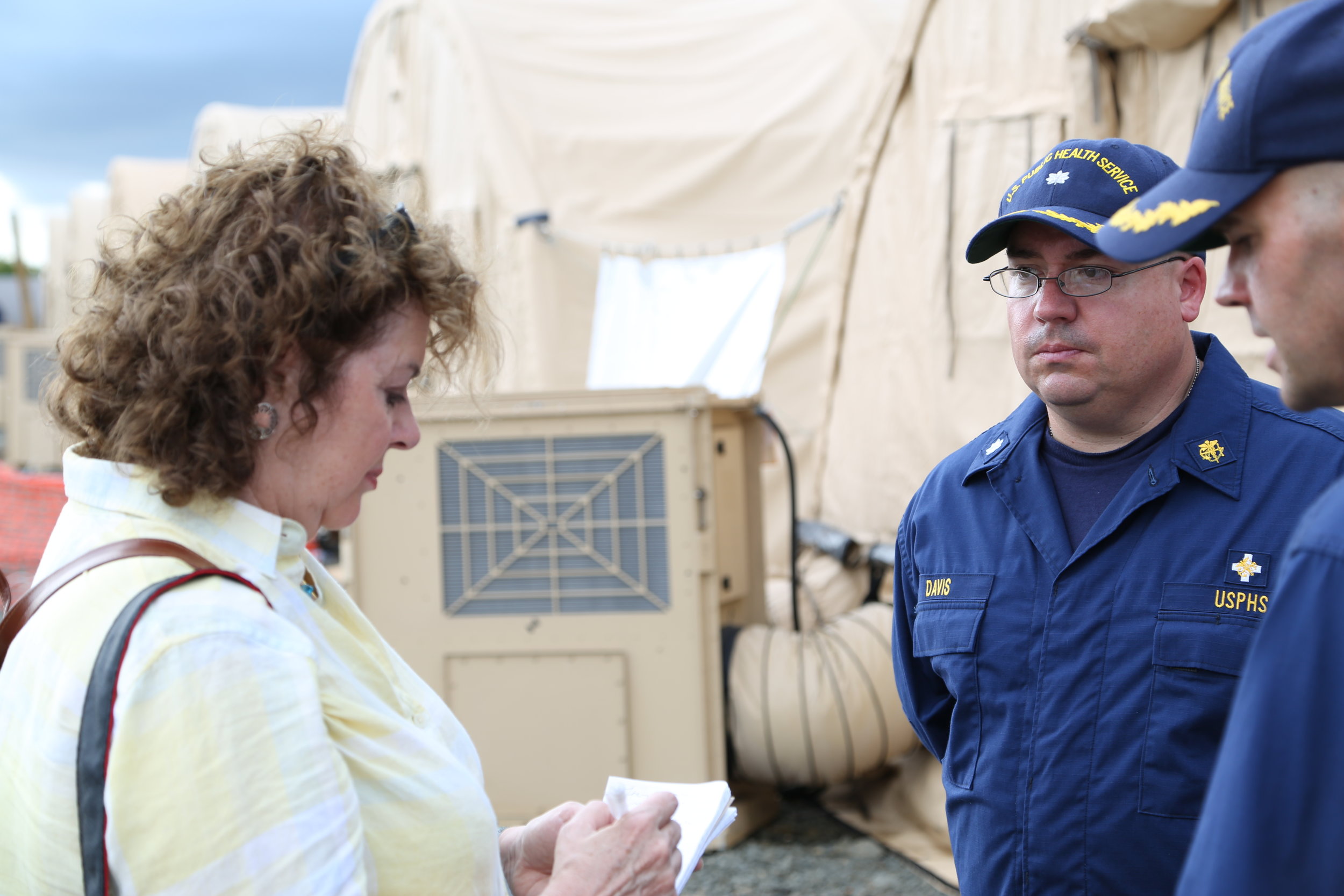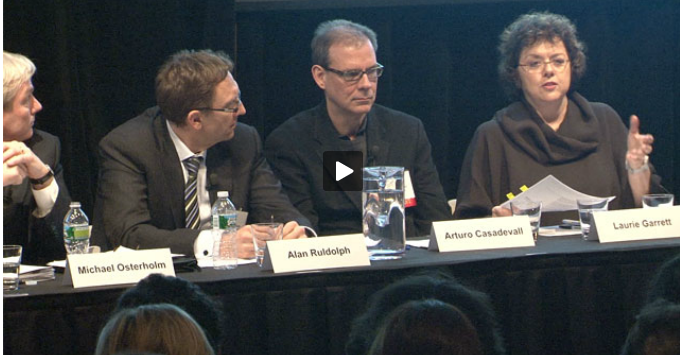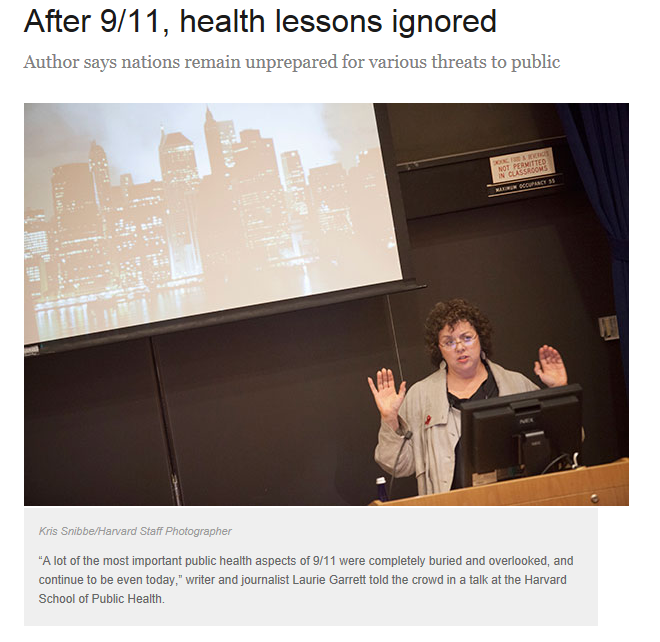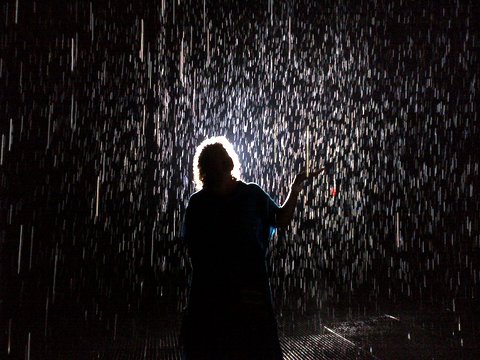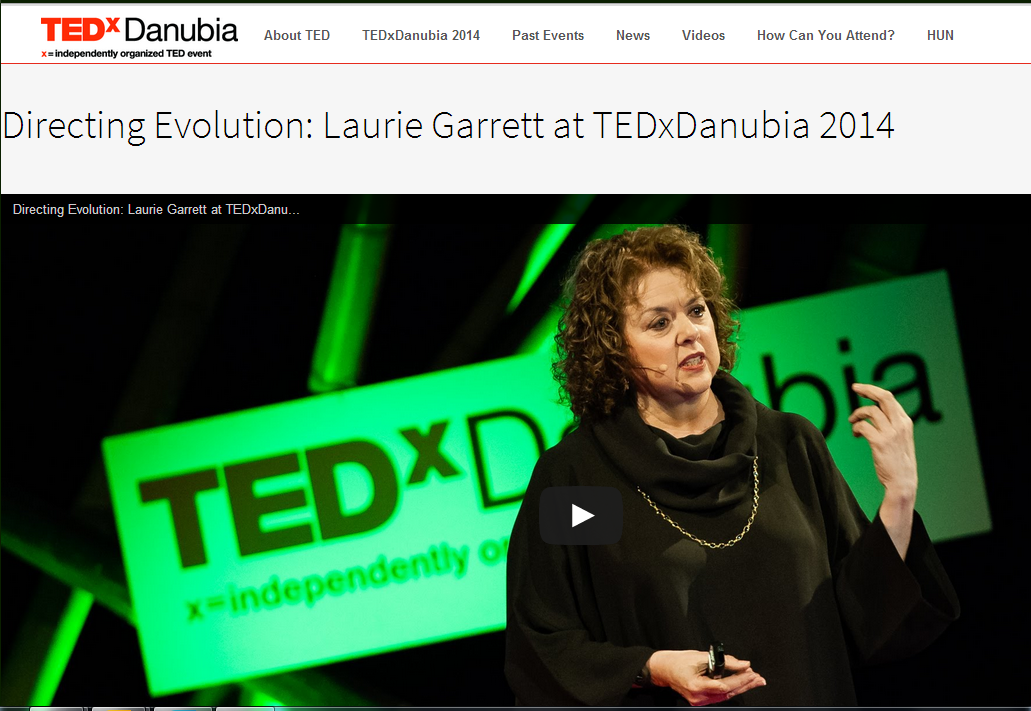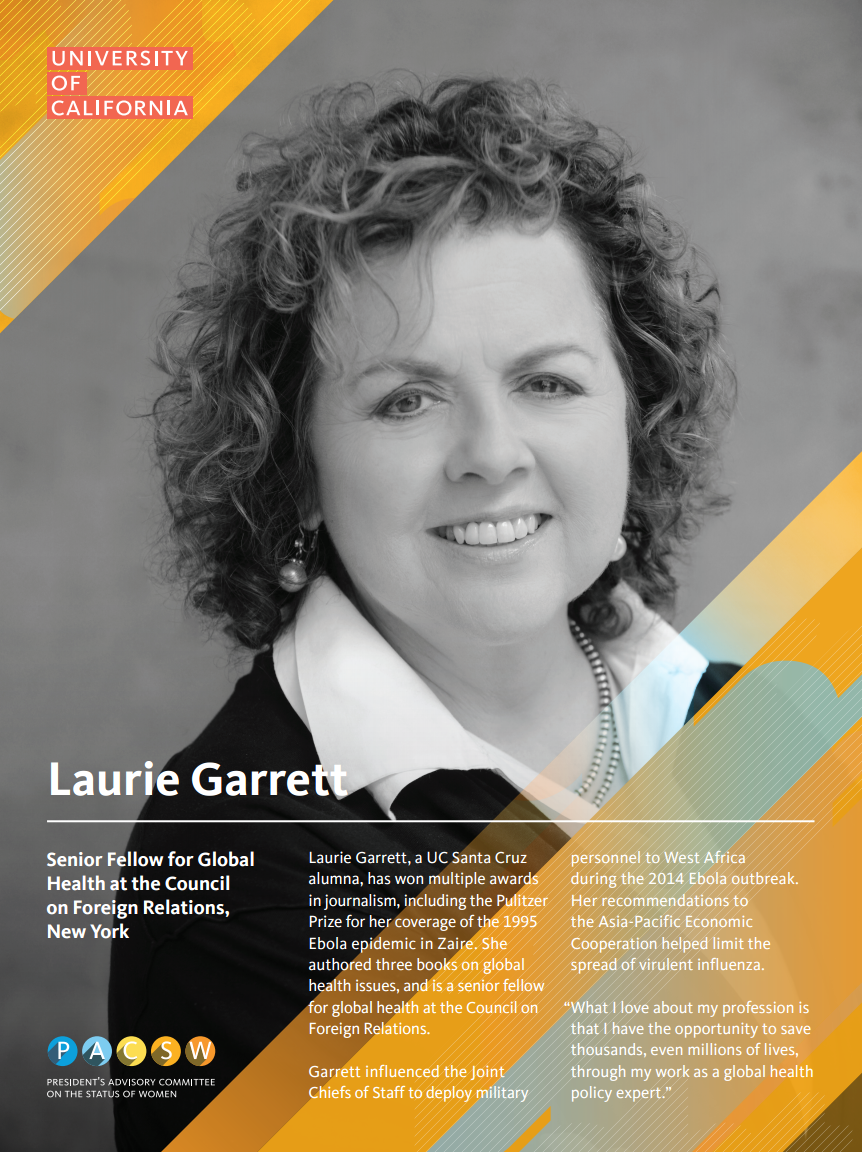Laurie Garrett is the only journalist to have received all of the “Big Ps” of journalism: The Peabody, Pulitzer, and Polk (three times).
With a background in research science, including graduation with Honors in Biology from UC Santa Cruz, PhD work in immunology at UC Berkeley and research at Stanford, Garrett started her journalism career in local radio broadcasting, followed by freelance reporting from Africa, and then as Science Correspondent for National Public Radio. By 1982 she was focused on the unfolding tragedy of HIV/AIDS as the deadly viral disease spread from one continent to another, covering the pandemic from all over the world first for NPR, and then Newsday and New York Newsday. Through the lens of HIV Garrett gained understanding of the social, political and national security aspects of emerging and new microbial diseases, leading to a Fellowship at the Harvard School of Public Health and writing of THE COMING PLAGUE: NEWLY EMERGING DISEASES IN A WORLD OUT OF BALANCE. Just months after its publication, Ebola broke out in Kikwit, Zaire: Garrett embedded with the responding epidemic control team in Kikwit for weeks, and her reporting garnered the 1996 Pulitzer Prize.
Recognizing failures in government, United Nations and private sector responses to disease outbreaks in the U.S., India, central Africa, and the former Soviet Union nations Garrett authored BETRAYAL OF TRUST: THE COLLAPSE OF GLOBAL PUBLIC HEALTH. And Garrett covered both the 9/11 and anthrax attacks extensively, leading to I HEARD THE SIRENS SCREAM: HOW AMERICANS RESPONDED TO THE 9/11 AND ANTHRAX ATTACKS. In 2003 Garrett was on the ground in the SARS epidemic, spending months in Hong Kong and China, and returning in 2005 to examine how Vietnam, Singapore, Japan and China handled the outbreak and its subsequent repercussions on the countries’ health systems and survivors.
At the urging of former U.S. Ambassador to the United Nations Richard C. Holbrooke, Garrett focused on the national security dimensions of naturally emerging and manmade pathogens, as well as the failure of global health systems and governments to prevent and respond to such threats, taking a position as Senior Fellow for Global Health at the Council on Foreign Relations. During her years at CFR Garrett tracked the emergence of deadly H5N1 “bird flu” and worked with the Bush Administration on development of a U.S. pandemic flu plan. She traveled across Liberia and Sierra Leone during the 2014-15 Ebola outbreak, and increasingly worked on climate change, planetary health, and related crises. After nearly fourteen years at CFR, Garrett has returned to her science journalism roots, writing extensively and reporting for multiple outlets, including MSNBC and Substack, on COVID-19 and a long list of health, science, geopolitical and climate concerns.
Along the way, Garrett has received five PhDs Honorus causa, been a finalist for the Pulitzer Prize in Journalism three times (receiving the award in 1996), been a finalist for the National Book Critics Award, three times been awarded the George Foster Peabody Award in Journalism, been named one of the Remarkable Women of the University of California as well as Outstanding Alum of UCSC, been honored with four awards from the Overseas Press Club of America and been cited with numerous other honors. She has worked on several film documentary and movie projects, most notably a six-part series on CNN based on THE COMING PLAGUE and the motion picture Contagion, directed by Steven Soderbergh.
Garrett lives in New York City.
The author
Laurie Garrett wrote her first bestselling book, THE COMING PLAGUE: Newly Emerging Diseases in a World Out of Balance, while splitting her time between the Harvard School of Public Health and the New York newspaper, Newsday. In the 1992-93 academic years Garrett was a Fellow at Harvard, where she worked closely with the emerging diseases group, a collection of faculty concerned about the surge in epidemics of previously unknown or rare viruses and bacteria. The book was published in hardcopy by Farrar, Straus, and Giroux in 1994, and spent 19 weeks on the New York Times bestseller list. Released in paperback in 1995 by Viking Penguin, THE COMING PLAGUE remains in print and continues to sell vigorously. The book was released in e-book form in May 2011.
During the 1990s Garrett continued tracking outbreaks and epidemics worldwide, noting the insufficient responses from global public health institutions in Zaire, India, Russia and most of the former USSR, Eastern Europe, and the United States. This resulted in publication in 2000 of BETRAYAL OF TRUST: The Collapse of Global Public Health, released by Hyperion that year, and in paperback in 2001. BETRAYAL OF TRUST was also a vigorous seller, and remains in print today. It was also released as an e-book in May 2011.
In Summer 2011 , Garrett’s long-awaited third book, I HEARD THE SIRENS SCREAM: How Americans Responded to the 9/11 and Anthrax Attacks, was published in time for the 10th Anniversary of 9/11 by Amazon as an e-book. It is also available on Kindle and in paperback.
Garrett is a Member of the World Economic Forum Global Health Security Advisory Board. She is also a member of the Council on Foreign Relations, and the National Association for Science Writers.
Garrett helped create the Noguchi Africa Prize and has three times served as its judge.
Listed as a twice-ver “Cassandra”, in WARNINGS: Finding Cassandras to Stop Catastrophes (2017), Richard A. Clarke and R.P. Eddy, HarperCollins Publishers.
The Journalist
HOLD FOR BLURB
The Council on Foreign Relations
In 2004, Laurie Garrett left Newsday to join the think tank staff of the Council on Foreign Relations in New York. She created the Council on Foreign Relation's Global Health Program, where she served as Senior Fellow for Global Health from 2004-2017. Garrett has written several reports and articles including: HIV and National Security: Where are the Links?, A Council Report (Council on Foreign Relations Press, 2005), "The Next Pandemic?" (Foreign Affairs, July/August 2005), "The Lessons of HIV/AIDS" (Foreign Affairs, July/August 2005), "The Challenge of Global Health" (Foreign Affairs, January/February 2007), The Future of Foreign Assistance Amid Global Economic and Financial Crisis, A Council on Foreign Relations Action Plan (2009), and CastroCare in Crisis (Foreign Affairs July/August 2010). Learn more about Laurie's work at CFR on their website.
Laurie Garrett Head Shots (click on images to download)
The "Public Intellectual"
Dr. Declan Fahy of Dublin City University presented the following abstract at the Public Communication of Science and Technology conference in Istanbul in April 2016 -- "Knowledge-based reporting of global infectious diseases: The pioneering journalism of Laurie Garrett".
"I explain in this paper how Pulitzer Prize-winning American health journalist Laurie Garrett became one of the world's most influential and authoritative writers on global infectious diseases.
I take Garrett as a case study of what journalism scholar Thomas Patterson and communication researcher Wolfgang Donsbach have called knowledge-based journalism. That is, journalism that applies one or more fields of specialized knowledge to the coverage of complex events, such as pandemics, in order to enhance citizens' understanding and influence policy on these new social threats.
To demonstrate how Garrett came to undertake this form of journalism, I examine the key moments of her career from the 1980s, when she first reported on the new disease of AIDS for the newspaper Newsday, to her most recent journalism on the 2014 Ebola outbreak in her role as Fellow at the US think tank, the Council for Foreign Relations.
Using methodological approaches from cultural and intellectual history, I analyze chronologically her news reports, books - The Coming Plague (1995), Betrayal of Trust (2000) and I Heard the Sirens Scream (2011) - policy reports and social media activity to show how she came to offer a unique, authoritative perspective on global infectious disease. I also situate these texts against the a historical background, where the new field of emerging infectious diseases (EID) developed in the 1990s as a new scientific framework for understanding novel threats such as HIV/AIDS, SARS, bird flu, and Ebola.
I argue that Garrett's work is pioneering in that it offers an original way to conceptualize the work of a health journalist. I argue also that her work shows, in practice, how a knowledge-based reporter can come to wield enormous influence in the public, political, and scientific understanding of health."
The link to the abstract can be found on the PCST conference website.
LONGER BIO
HOLD FOR MORE FROM LAURIE
